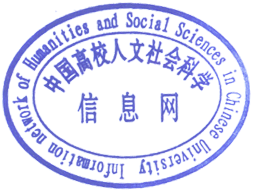关 键 词 :政府行为 人工智能 系统结构 动态过程 功能构建学科分类:社会学--应用社会学
人工智能时代的到来正在深刻影响地方政府的发展战略和产业行为。湖南省长沙市人工智能产业发展是地方发展型政府赶超战略的集中体现,反映了地方政府为谋求地方经济跨越式发展而实施政策行为的努力。本文立足于长沙市人工智能产业发展的探索实践,从地方政府行为入手,在“结构—过程—功能”的基本分析框架指导下,通过半结构式访谈、类属分析等方法,展示了长沙市政府引导人工智能产业发展的运作机制。一方面,作为政策企业家的长沙市政府领导干部通过整合组织内部资源,实现了资源的有效集聚与深度耦合;另一方面,长沙市政府领导干部充分利用政策机制,健全了引导人工智能产业发展的战略体系。本文通过整体治理理论,剖析长沙市政府如何整合组织内部资源引导人工智能产业发展;以创新生态系统理论窥见长沙市人工智能产业发展中的政策机制传导路径;并从微观、中观、宏观三个层次探究政策机制对长沙市人工智能产业发展的激励效应,最终达到为地方政府发展人工智能产业提供经验借鉴的目的。
The advent of the artificial intelligence era is profoundly influencing the development strategies and industrial behaviors of local governments. The development of the artificial intelligence industry in Changsha, Hunan Province, is a concentrated manifestation of the catch-up strategy of a local development-oriented government, reflecting the efforts of local governments to implement policy behaviors in pursuit of leapfrog economic development. Based on the exploration and practice of the development of the artificial intelligence industry in Changsha, this paper starts from the behavior of local governments and, under the guidance of the basic analytical framework of "structure-process-function", uses semi-structured interviews and category analysis methods to demonstrate the operation mechanism of the Changsha municipal government in guiding the development of the artificial intelligence industry. On the one hand, the leading cadres of the Changsha municipal government, as policy entrepreneurs, have achieved effective resource aggregation and deep coupling by integrating internal organizational resources. On the other hand, the leading cadres of the Changsha municipal government have fully utilized policy mechanisms to improve the strategic system for guiding the development of the artificial intelligence industry. This paper analyzes how the Changsha municipal government integrates internal organizational resources to guide the development of the artificial intelligence industry through the theory of overall governance; examines the transmission path of policy mechanisms in the development of the artificial intelligence industry in Changsha through the theory of the innovation ecosystem; and explores the incentive effects of policy mechanisms on the development of the artificial intelligence industry in Changsha from the micro, meso, and macro levels, ultimately aiming to provide experience and reference for local governments in developing the artificial intelligence industry.

